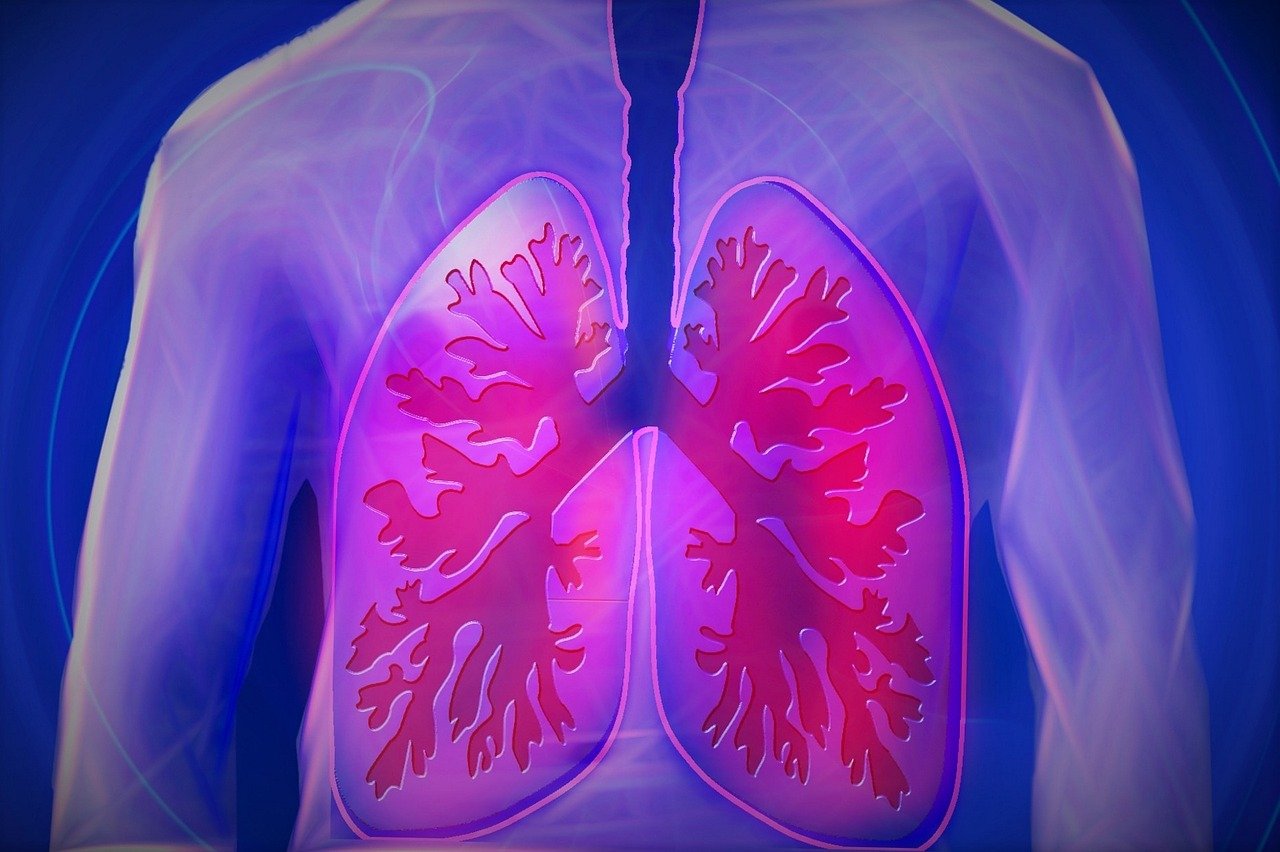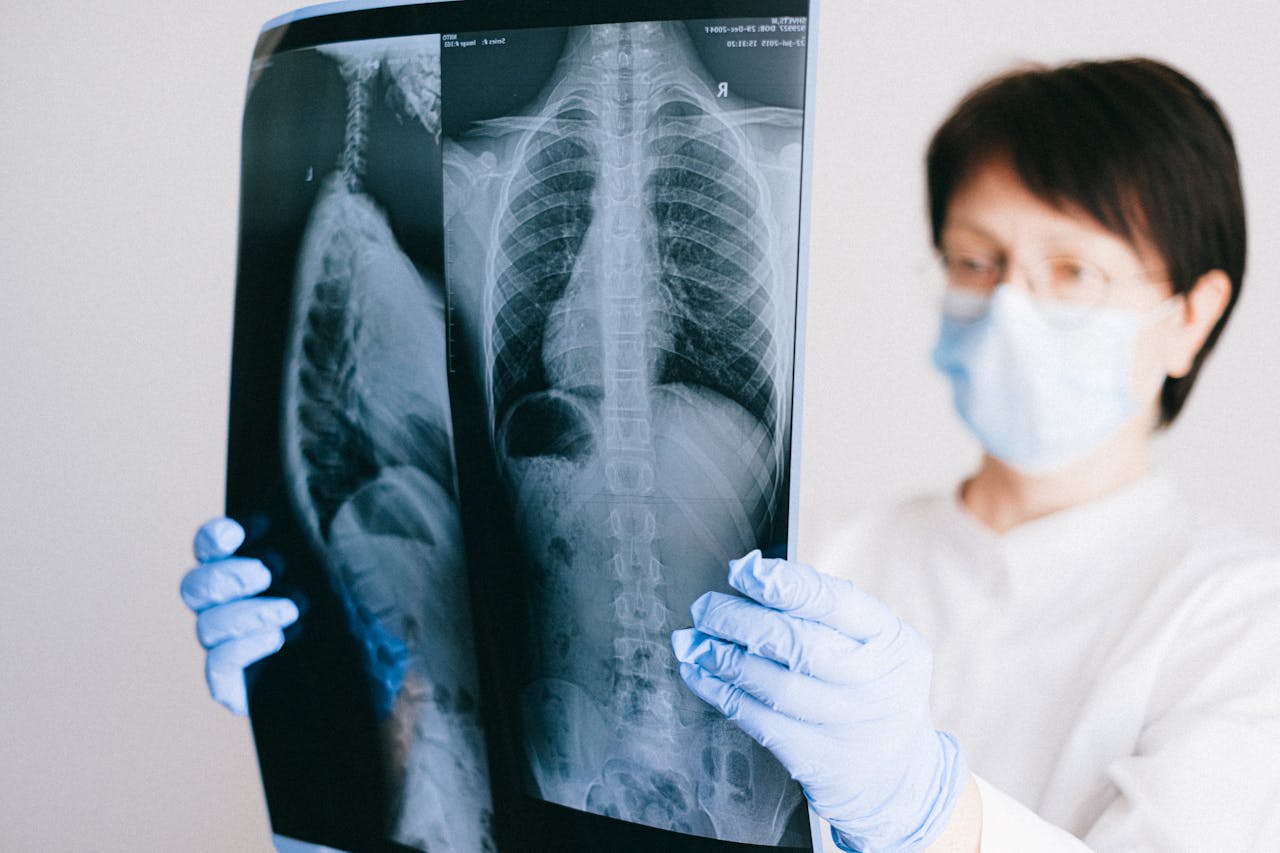Small cell lung cancer is a type of lung cancer that occurs as a result of the aggressive growth of a tumor in the lung tissues, leading to rapid spread. Due to its aggressive nature, this cancer spreads quickly and metastasizes to distant organs.
This type constitutes about 15% of all lung cancers and is treated with various methods. Treatments like radiotherapy, chemotherapy, and immunotherapy are commonly used to manage the disease.
What is Small Cell Lung Cancer?

After the formation of a tumor in the lung tissue, the uncontrolled proliferation and spread of tumor cells result in lung cancer.
In the case of small cell lung cancer, the uncontrolled growth and spread occur in small cells, leading to rapid dissemination. Because of this characteristic, this type of cancer is highly metastatic and progresses quickly.
What Causes Small Cell Lung Cancer?
In cancer patients, family history is often significant, as a genetic predisposition to cancer increases the risk. Small cell lung cancer may be caused by such genetic factors. Additionally, other causes of cancer include:
- Smoking: Chemicals in cigarette smoke damage the DNA in the lungs, triggering lung cancer.
- Exposure to asbestos, air pollution, and radon gas: These environmental factors increase the risk of lung cancer. Thus, working and living conditions are critical.
Symptoms of Small Cell Lung Cancer
Symptoms of small cell lung cancer vary depending on the stage. In the early stages, symptoms may be minimal or nonexistent. Early-stage symptoms include:
- Shortness of breath
- Chest pain
- Hoarseness
- Persistent dry cough
- Sudden weight loss
- Loss of appetite
In advanced stages, symptoms may include:
- Swelling in the neck and face
- Difficulty swallowing
- Bloody sputum
- Bone pain due to metastasis
- Symptoms like dizziness, fatigue, and headaches from brain metastases
Anyone experiencing these symptoms should consult a doctor, as early diagnosis significantly improves the success of treatment.
Prof. Dr. Semih Halezeroğlu can support you with his expertise, offering appropriate diagnostics and treatments tailored to the stage of the disease to improve your quality of life.
Is There a Treatment for Small Cell Lung Cancer?
 Is it possible to treat small cell lung cancer? Treatment begins with a patient-specific plan, influenced primarily by the stage of the cancer. The stages include:
Is it possible to treat small cell lung cancer? Treatment begins with a patient-specific plan, influenced primarily by the stage of the cancer. The stages include:
| Stage | Description |
|---|---|
| Limited Stage | The cancer has not spread beyond the lungs. |
| Extensive Stage | The cancer has metastasized to other organs beyond the lungs. |
Surgery is rarely used but may be applied in limited-stage cases. Chemotherapy is the primary treatment method for both stages. This treatment aims to halt disease progression, prevent spread, and destroy cancer cells.
In extensive-stage cancer, chemotherapy is often combined with radiotherapy to manage symptoms and pain. Radiotherapy uses high-energy beams to destroy cancer cells in targeted areas.
In recent years, chemotherapy has been paired with targeted therapies like smart drugs. However, immunotherapy is not as effective for this type of cancer as it is for non-small cell lung cancer.
What is the Survival Rate for Small Cell Lung Cancer?
The survival rate for small cell lung cancer depends on the patient’s overall health, cancer stage, and response to treatment. The 5-year survival rate ranges from 5% to 15%, with early diagnosis significantly improving outcomes.
1 – Survival Rate for Stage 3 Small Cell Lung Cancer
Despite chemotherapy and radiotherapy, recurrence is common. The 5-year survival rate for stage 3 cancer is about 15%.
2 – Survival Rate for Stage 4 Small Cell Lung Cancer
In stage 4, where metastasis occurs, chemotherapy is the standard treatment. The expected survival time with treatment is 12–14 months.
Can Patients Recover from Small Cell Lung Cancer?
 Small cell lung cancer shows mild symptoms in the early stages, with more severe symptoms in advanced stages. Early diagnosis increases the likelihood of successful treatment.
Small cell lung cancer shows mild symptoms in the early stages, with more severe symptoms in advanced stages. Early diagnosis increases the likelihood of successful treatment.
Patient reviews emphasize the importance of early detection. It is crucial to consult a healthcare provider immediately upon noticing symptoms to ensure timely diagnosis and treatment.
Frequently Asked Questions
Here are some commonly asked questions about small cell lung cancer:
1 – How Long Can a Patient with Small Cell Lung Cancer Live?
For limited-stage cancer, the survival period is generally 14–16 months. In extensive-stage cancer, the survival period is about 11–12 months.
2 – Can Small Cell Lung Cancer Be Completely Cured?
Treatment methods like chemotherapy, radiotherapy, and immunotherapy are available. However, these treatments often do not completely cure the cancer, especially in advanced stages. Early detection improves treatment success rates.
3 – Does Small Cell Lung Cancer Recur?
Recurrence depends on the stage. While early-stage cancer treated surgically has a low recurrence rate, advanced-stage cancers have a higher risk of recurrence.
4 – Where Does Small Cell Lung Cancer Metastasize?
It can metastasize to nearly any organ, commonly affecting the adrenal glands, lymph nodes, liver, brain, and bones. Less common sites include the pancreas, kidneys, stomach, and intestines.



